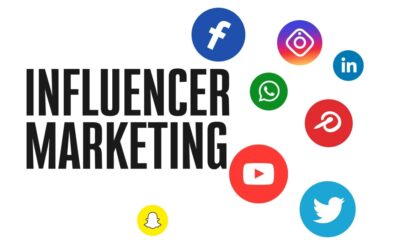Business
Successful Small Business Marketing Strategies to Market Your Brand

Without a strong marketing plan, a company’s excellent product that helps satisfy customer wants would be useless. Businesses can use marketing to build their brand awareness, generate leads, and expand their company.
A comprehensive marketing strategy is essential for small businesses to differentiate their brand from the competition. Costly marketing is not necessary; it only needs to be successful and attractive to the target market.
The significance of marketing, the success of digital marketing, and effective small-business marketing strategies will all be discussed in this article.
Why Does Small Business Marketing Matter?
Compared to multinational companies, small businesses typically have a significantly lesser reach and brand recognition. To increase sales and attract new clients, they need to do more than rely just on word-of-mouth. Marketing allows a small business to express its vision to consumers who might not be familiar with their business.
Nowadays, the majority of consumer purchases are made online shopping. Therefore, small businesses should use online marketing tools to their full potential rather than concentrating on costly offline marketing techniques. These can generate long-term sales and growth, develop brand loyalty, and enable small businesses to engage directly with their target audience.
Small business marketing strategies ought to focus on:
- Establishing a brand presence: Before launching, a small business should decide what kind of image it wants to project and maintain consistency in its messaging. Additionally, it must create a logo, establish an online presence, and communicate with its audience on a regular basis.
- Stand out from the competition: Many brands are vying for customers in the congested online market. As a result, successful small business marketing strategies will aim to set their products apart from the competitors.
- Reach your target market: The target market should always be reached by marketing. Brands should research their preferred shopping channels, when they are most active online, etc., and make appropriate plans.
- Develop brand loyalty: If brands want their customers to stick around, they must cultivate brand loyalty. They must reply to feedback from customers and make use of them to enhance their services.
How Can You Identify Who Your Target Audience Is?
A small business must determine its target market before developing a product line and launching it. Since the target audience will be the primary focus, this is the first step in creating a marketing strategy. Brands can further refine their goods by determining their target market.
A small business owner cannot decide how to develop a marketing strategy for their company without a target audience. For example, homeowners between the ages of 25 and 45 would be the target market for a small business that sells candles and diffusers.
Businesses can take the following actions to find out who their target audience is:
- Describe your product.
- Make a statement of your vision and mission.
- Make an audience profile with their age, gender, job, and other details.
- Perform market research.
- Analyze the profiles of the competition’s audience.
- Identify your target audience.
- Make adjustments and improvements with analytics.
Use Social Media Marketing
Companies and brands need to be present online in the modern digital world. To engage with followers and publish content on a regular basis, they require a specialized social media team. This is important since it attracts new clients and builds brand loyalty.
One of the most effective strategies for small business marketing is social media, which must be incorporated into any strategy. A small business can reach people around the world with the aid of platforms such as Instagram, TikTok, and Facebook Marketplace. Businesses can establish a presence and raise brand awareness by using influencer marketing, paid ads, and hashtags strategically.
Small businesses must, however, communicate frequently and develop an online image that appeals to the target audience if they want to be successful in the long run. They ought to reply to questions, comments, and feedback as well. This promotes trust and raises the chances that followers will become clients.
Establish a Powerful Online Presence with a Website and SEO
Without an online presence, it is hard for any business, but small businesses in particular, to develop a loyal customer base. Small businesses can measure revenue, communicate with clients, and comprehend buying behavior by having an effective online presence.
A well-designed website is also essential for small businesses. This aids in introducing the target audience to the brand and its offerings. The website should also provide the company’s social media usernames and contact information.
The website should include:
- A domain name that is appropriate for small businesses
- Designed for mobile and the web
- It should be easy to use and contain all the necessary pages, like contact details, products, and “about us.”
Search Engine Optimization (SEO) is a fundamental marketing strategy for small businesses that will raise their website’s ranking above that of their competitors. Among the finest techniques for SEO are:
- Identify the right keywords that the target audience uses
- Location-specific title tags
- Make use of keywords in headings
- Make content that is helpful and easily integrates keywords.
Email Marketing for Customer Retention
One of the most often used marketing strategies for small businesses is email marketing. It is affordable and enables direct client interaction for small enterprises. Sending a bulk email to a company’s customer database—which may include past, present, and potential clients—is known as email marketing.
It is possible to send out these emails on a weekly, monthly, quarterly, or annual basis. This marketing strategy is intended to assist businesses in announcing sales, discounts, the introduction of new products, or festive promotions. Additionally, it boosts sales for small businesses.
An email database can be created by a small business using the checkout page, website logins, or promotions.
One of the top marketing strategies for small businesses is still email marketing because:
- It enables businesses to directly target clients
- Enables a personalized strategy
- Brands can provide targeted offers and promotions
- A more targeted approach can help marketers further categorize their target audience
- It may have a Call to Action (CTA) and links to the blog or catalog
- Helps in tracking and evaluating customer behavior
Partner with Local Influencers
It is impossible to overlook the significance of social media influencers when talking about small business marketing strategies. A small business can collaborate with a local or micro-influencer to interact with their target audience across several channels, contingent on their marketing budget and operational scale.
This enables a small business to reach a wider audience and attract potential clients that it might otherwise overlook. Small businesses must confirm that the influencer they are collaborating with has comparable or the same values. They must balance the need to attract a wider audience without offending their core audience.
Offer Special Promotions and Loyalty Programs
Recurring clients are essential to the success of any organization. By reviewing products and sharing their content with friends on Instagram, they also contribute to the brand’s word-of-mouth promotion. Sales are increased, customer interaction is encouraged, and new customers are attracted when brands run promotions.
Additionally, it enables small businesses to gather useful information like contact details, best-selling products, buying patterns, etc. When a new brand or product is offered at a discount or as part of a package, consumers are more likely to test it.
To attract new customers, small businesses can provide a free product or a special discount price. To promote purchases, it can also advertise festive promotions throughout the Christmas season.
Ideas for small business marketing strategies can include cashback, loyalty programs, special discounts for first-time consumers, and more.
Measure and Adjust Your Strategies
Small business marketing strategies can remain successful if they are routinely reviewed and modified as necessary. Analytical tools can be used by small businesses for measuring social media reach and engagement as well as website traffic.
To find out the efficacy of various landing pages, brand messaging, or email content, small businesses may use A/B testing. They may use a particular marketing approach or specific promotional content more often if it works better.
For a small business to effectively use its resources and ensure that its messaging reaches its target audience, it must modify its marketing techniques.
How Can You Use Marketing Strategies with the Help of Business School?
Getting a Master of Business Administration (MBA) or other advanced degree from a business school can help small business owners learn important marketing principles like branding, consumer behavior, and market research. They can learn other small business marketing strategies from it as well.
Students learn about different industry challenges and how businesses have solved them to become profitable through case studies and group projects. Additionally, networking opportunities at business schools might result in internships and mentorship. These give aspiring entrepreneurs the chance to acquire useful skills that they can use in their own enterprises.
As an alternative, they can take a quick course in data analytics or digital marketing to increase their knowledge of successful marketing techniques.
Conclusion
Small businesses need to use effective marketing strategies if they want to succeed and establish a brand. They can use these to connect with their target audience, introduce them to their products, and win their loyalty.
For small businesses to thrive in the competitive market, they must use efficient marketing strategies. Strategic branding, marketing, and promotion will ultimately increase sales and engage customers, even though having a fantastic product is still essential.
-

 Business4 weeks ago
Business4 weeks agoHow to fill MSME Form 1? Step-by-Step Guide
-
Business4 weeks ago
From Marine to Chief: The Leadership Journey of Sean Mannix
-

 Gadget4 weeks ago
Gadget4 weeks agoAfter Grand Success on BLDC Ceiling Fan, Eff4 Is Launching Smart Bulb
-

 Festivals & Events4 weeks ago
Festivals & Events4 weeks agoGoogle Celebrates Cherry Blossom Season with Animated Doodle
-

 Business2 weeks ago
Business2 weeks agoPrakash and Kamal Hinduja: Driving Social and Environmental Change
-
Education3 weeks ago
Fred DuVal: University Leadership as a Critical Resource for Climate Change Research and Life-Saving Solutions
-

 Sports4 weeks ago
Sports4 weeks ago2025 NASCAR Craftsman Truck Series Baptist Health 200 at Homestead-Miami Speedway: Race Preview, Prediction, Schedule, Entry List, Drivers to Watch and How to Watch
-

 Health2 weeks ago
Health2 weeks agoThe Hinduja Brothers Commitment to Global Health: Empowering Communities Across Borders

























